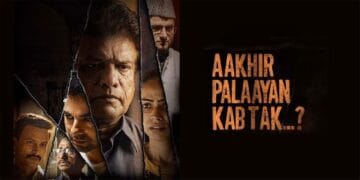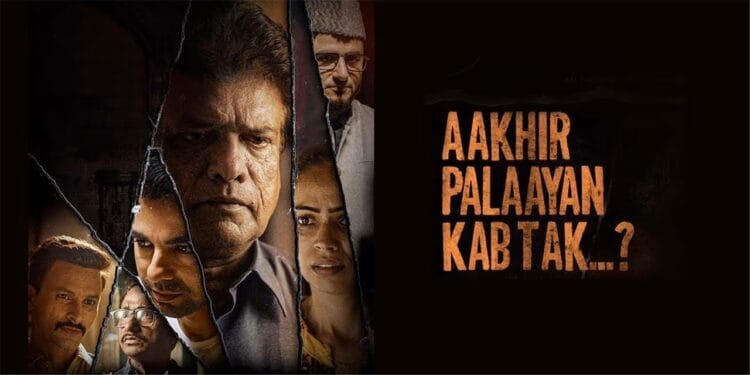“Aakhir Palaayan Kab Tak” (When Will This Escape End?), directed by Mukul Vikram, is a film that wades into the murky waters of social tensions and religious divides. It weaves a narrative around the struggles of the protagonist Sunil (Vikram Singh), a Hindu businessman facing increasing hostility in a Muslim-dominated town. While aiming to spark discourse on sensitive issues, the film stumbles in its execution, leaving more questions than answers and generating mixed reactions.
A Precarious Premise:
The film sets its stage in Dehradun, a city with a diverse population. Sunil, a successful businessman, finds his community increasingly marginalized, facing threats and discrimination. He witnesses the exodus of Hindu families and grapples with the dilemma of staying or leaving. This premise, while relevant in today’s socio-political climate, is handled with a heavy-handed approach. The film portrays a starkly polarized society, with communities defined solely by religion and devoid of individual nuance. This binary representation simplifies complex issues and can potentially fuel existing prejudices.
Performances and Portrayals:
Vikram Singh delivers a heartfelt performance as the beleaguered Sunil, conveying his pain and frustration effectively. However, the supporting cast lacks depth, often falling into stereotypical portrayals. The portrayal of the Muslim community, in particular, raises concerns. While highlighting the plight of Sunil and his family, the film risks demonizing an entire community through its one-sided narrative.
Technical Aspects:
The film’s technical aspects are average. The cinematography is decent, capturing the scenic beauty of Dehradun and the stark realities of the town’s underbelly. The music, though not particularly memorable, complements the mood and narrative. However, the editing feels uneven at times, disrupting the flow of the story.
The Ethical Dilemma:
“Aakhir Palaayan Kab Tak” raises crucial questions about social harmony, religious tolerance, and the search for belonging. However, its approach is problematic. The film’s blatant biases and lack of balanced perspectives risk fueling societal divisions rather than promoting understanding and dialogue. It walks a tightrope between raising awareness and perpetuating harmful stereotypes, leaving the audience grappling with ethical concerns.
Lost in Translation:
While the film attempts to address complex issues, its execution falls short. The simplistic narrative and unsubtle portrayals fail to offer a nuanced take on the social conflicts it portrays. The message of unity and tolerance gets lost in the melodrama and one-sidedness, leaving the audience with a sense of unease rather than enlightenment.
A Missed Opportunity:
“Aakhir Palaayan Kab Tak” had the potential to spark important conversations about social harmony and religious tolerance. However, its flawed execution and problematic narrative overshadow the film’s message. Instead of fostering understanding, it risks widening divides and perpetuating harmful stereotypes. While the film deserves credit for tackling a sensitive topic, it ultimately fails to deliver a nuanced and thought-provoking exploration of the issue.

































































